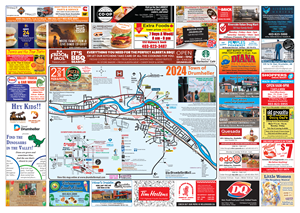As a society, we are sleeping less than ever before. There are many factors that contribute to sleep deprivation, from longer work hours, to higher stress, and a long list of other contributors. While some of us don't lay our heads down long enough, for others, sleep time is short because of difficulty falling asleep. If...
As a society, we are sleeping less than ever before. There are many factors that contribute to sleep deprivation, from longer work hours, to higher stress, and a long list of other contributors. While some of us don't lay our heads down long enough, for others, sleep time is short because of difficulty falling asleep. If this is you, consider whether caffeine could be sabotaging your efforts to get in the winks you need.
Caffeine is absorbed into the bloodstream, peaking anywhere between 30-120 minutes after you take it in (depending on the source). It diffuses through the entire body and crosses all membranes, including the placenta and the blood-brain barrier. In the brain, it affects areas of the brain that control sleep and wakefulness by blocking adenosine receptors.
It takes on average 18.5 hours, but as much as 50 hours (count 'em!) for caffeine to completely leave your body after ingestion. (For scientists in the audience: the half life is 3.7 hours, but ranges from 2-10 hours). This time is shorter in smokers, and longer in pregnant women and women using the birth control pill. Our genetics also affect how quickly we metabolize caffeine.
The approximate caffeine content of some common beverages is as follows:
Coffee and Tea:
- 8 oz cup of generic brewed coffee: 100-200 mg
- Starbucks Grande: 320 mg
- 1 oz espresso: 30-90 mg
- 1 Starbucks Via: 130-140 mg
- 8 oz decaf coffee: 4-8 mg
- 8 oz cup of tea: 50mg (range 40-120 mg)
Cold Drinks:
- 16 oz Snapple: 42 mg
- 12 oz Nestea: 26 mg
- 1 can of diet Coke: 47 mg
- 1 can of Diet Pepsi: 36 mg
- 1 can of Red Bull: 80 mg
Consider also the caffeine in chocolate (per 50g):
Be cautious of over the counter pain medications, which can contain caffeine as well, often in the range of 25-65mg per tablet: Excedrin and Anacin are examples.
So: could caffeine be affecting your sleep?
Dr Sue Pedersen www.drsue.ca © 2012 drsuetalks@gmail.com
Follow me on Twitter for daily tips! @drsuepedersen
- milk chocolate: 2-25 mg
- dark chocolate: 8-60 mg
- extra dark: 30-120 mg
Be cautious of over the counter pain medications, which can contain caffeine as well, often in the range of 25-65mg per tablet: Excedrin and Anacin are examples.
So: could caffeine be affecting your sleep?
Dr Sue Pedersen www.drsue.ca © 2012 drsuetalks@gmail.com
Follow me on Twitter for daily tips! @drsuepedersen












































